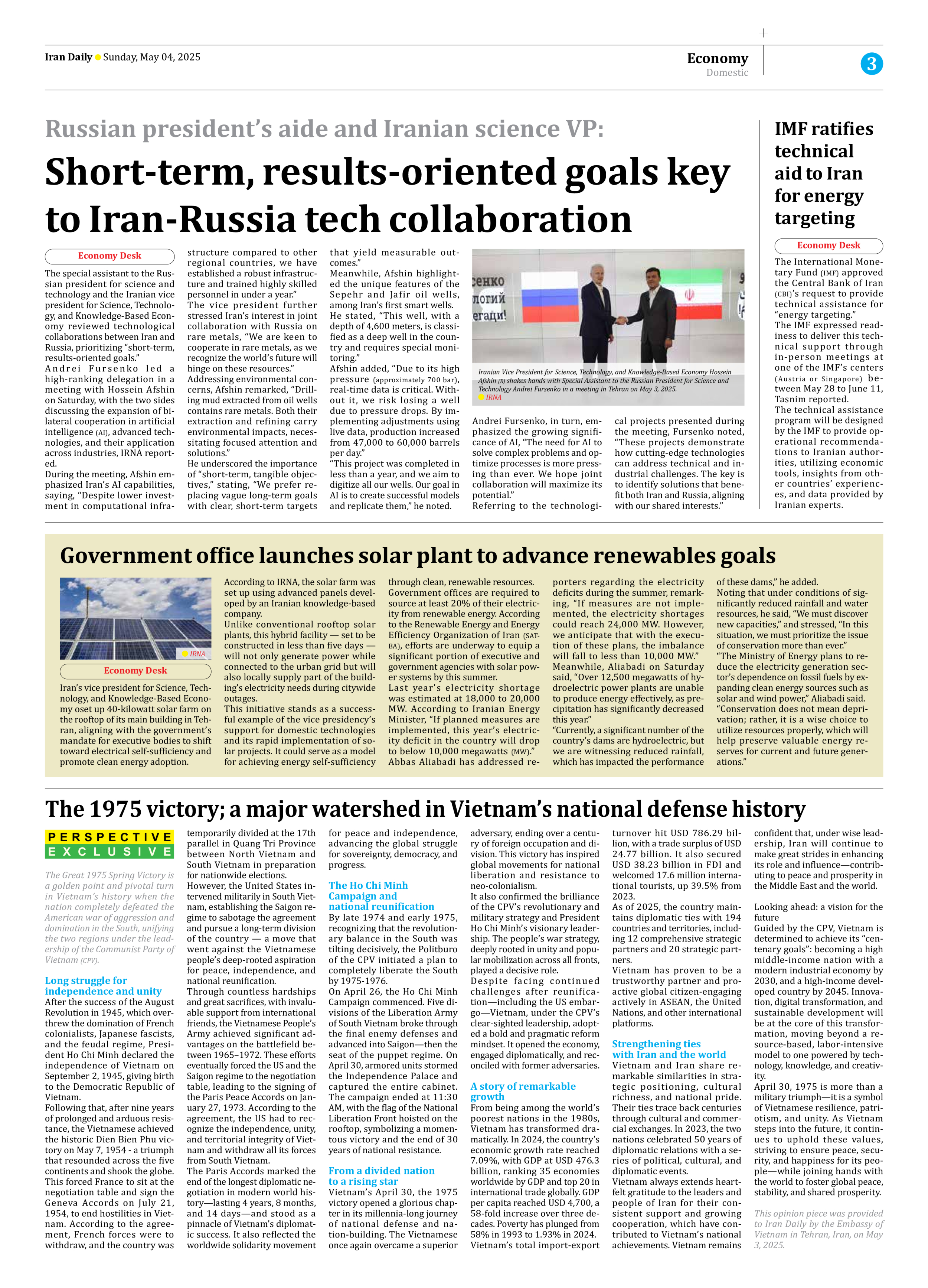
Russian president’s aide and Iranian science VP:
Short-term, results-oriented goals key to Iran-Russia tech collaboration
The special assistant to the Russian president for science and technology and the Iranian vice president for Science, Technology, and Knowledge-Based Economy reviewed technological collaborations between Iran and Russia, prioritizing “short-term, results-oriented goals.”
Andrei Fursenko led a high-ranking delegation in a meeting with Hossein Afshin on Saturday, with the two sides discussing the expansion of bilateral cooperation in artificial intelligence (AI), advanced technologies, and their application across industries, IRNA reported.
During the meeting, Afshin emphasized Iran’s AI capabilities, saying, “Despite lower investment in computational infrastructure compared to other regional countries, we have established a robust infrastructure and trained highly skilled personnel in under a year.”
The vice president further stressed Iran’s interest in joint collaboration with Russia on rare metals, “We are keen to cooperate in rare metals, as we recognize the world’s future will hinge on these resources.”
Addressing environmental concerns, Afshin remarked, “Drilling mud extracted from oil wells contains rare metals. Both their extraction and refining carry environmental impacts, necessitating focused attention and solutions.”
He underscored the importance of “short-term, tangible objectives,” stating, “We prefer replacing vague long-term goals with clear, short-term targets that yield measurable outcomes.”
Meanwhile, Afshin highlighted the unique features of the Sepehr and Jafir oil wells, among Iran’s first smart wells.
He stated, “This well, with a depth of 4,600 meters, is classified as a deep well in the country and requires special monitoring.”
Afshin added, “Due to its high pressure (approximately 700 bar), real-time data is critical. Without it, we risk losing a well due to pressure drops. By implementing adjustments using live data, production increased from 47,000 to 60,000 barrels per day.”
“This project was completed in less than a year, and we aim to digitize all our wells. Our goal in AI is to create successful models and replicate them,” he noted.
Andrei Fursenko, in turn, emphasized the growing significance of AI, “The need for AI to solve complex problems and optimize processes is more pressing than ever. We hope joint collaboration will maximize its potential.”
Referring to the technological projects presented during the meeting, Fursenko noted, “These projects demonstrate how cutting-edge technologies can address technical and industrial challenges. The key is to identify solutions that benefit both Iran and Russia, aligning with our shared interests.”







